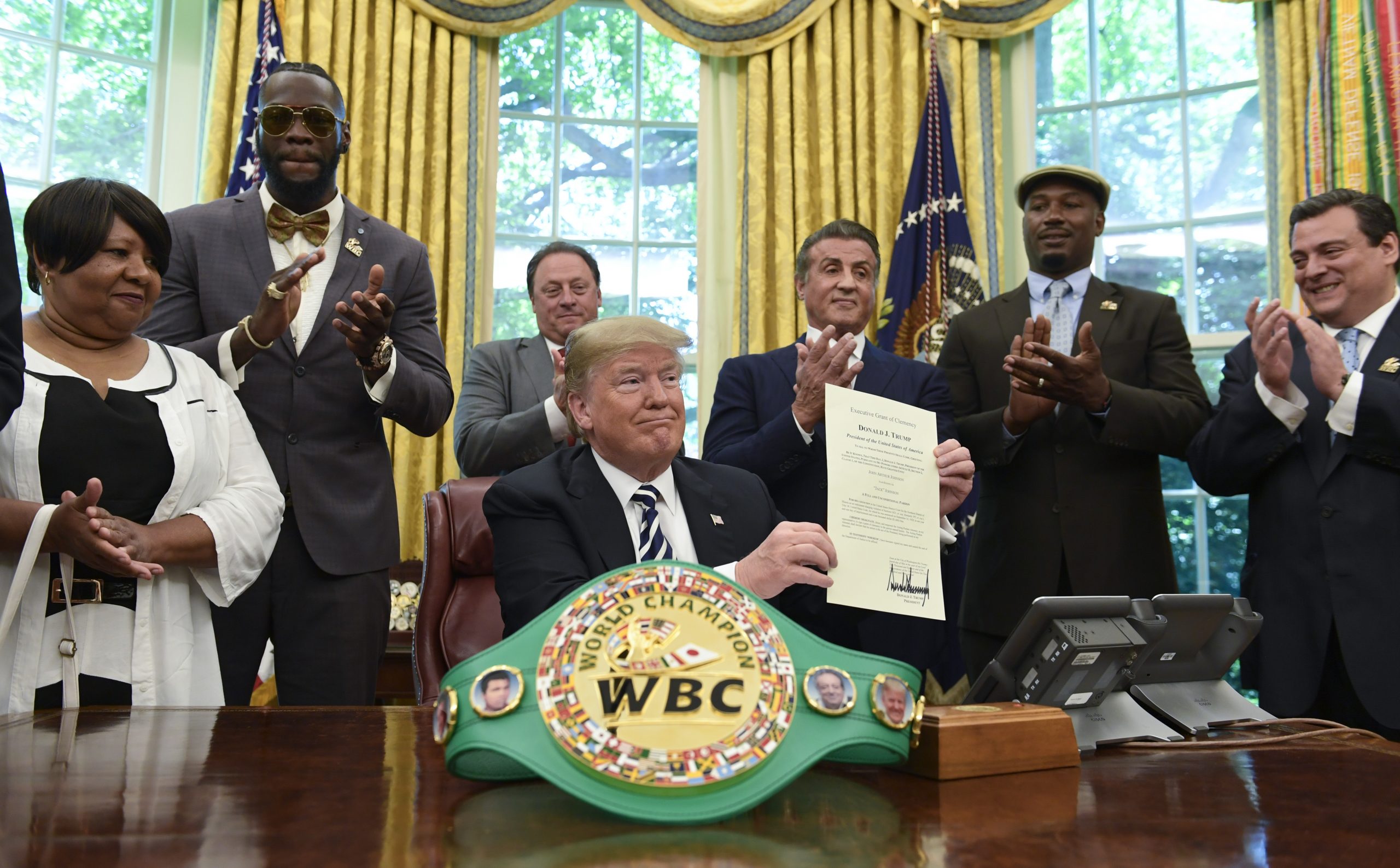President Trump welcomed a group of heavyweight boxing personalities to the White House on Thursday for a ceremony to mark his pardoning of the late Jack Johnson, the first black heavyweight champion, who was convicted by an all-white jury in 1913 of accompanying his then-girlfriend across state lines.
“Today as president, I’ve issued an executive grant of clemency — a full pardon posthumously — to John Arthur Jackson, the first African-American heavyweight champion of the world, a truly great fighter who had a tough life,” Trump announced from the Oval Office.
Johnson, nicknamed the “Galveston Giant” during his career, was arrested in 1912 on charges of violating the Mann Act, which banned men from transporting women across state lines for “immoral purposes.” He served 10 months in prison after fleeing the U.S. and returning in 1920.
Trump — flanked by Johnson’s great-great niece, Linda Haywood, heavyweight champion Deontay Wilder, Parlay founder Keith Frankel, “Rocky” star Sylvester Stallone, former heavyweight champ Lennox Lewis, and WBC President Mauricio Sulaiman Saldivar — noted that many have long viewed the charge against Jackson, who died more than seven decades ago, as “a racially motivated injustice.”

Though rare under previous administrations, posthumous pardons have happened before. Former President George W. Bush pardoned Boston-born businessman Charles Winters in 2008, who was convicted of violating the U.S. Neutrality Act in 1949 after volunteering to fight for a Jewish state in the Arab-Israeli War. And former President Bill Clinton pardoned Henry Flipper, an African-American officer in the Civil War, who was charged with embezzlement.
Trump’s immediate predecessor, Barack Obama, had been pressured to posthumously pardon Jackson during his tenure, but Justice Department officials at the time said resources would be “better spent on the Pardon and commutation requests of living persons.”
“They thought it was going to be signed in the last administration, and that didn’t happen. So, that was very disappointing for a lot of people,” Trump said, referring to Obama.
Haywood had previously worked with Harvard Law School to draft a petition that was sent to Obama requesting a pardon for her great-great uncle.
